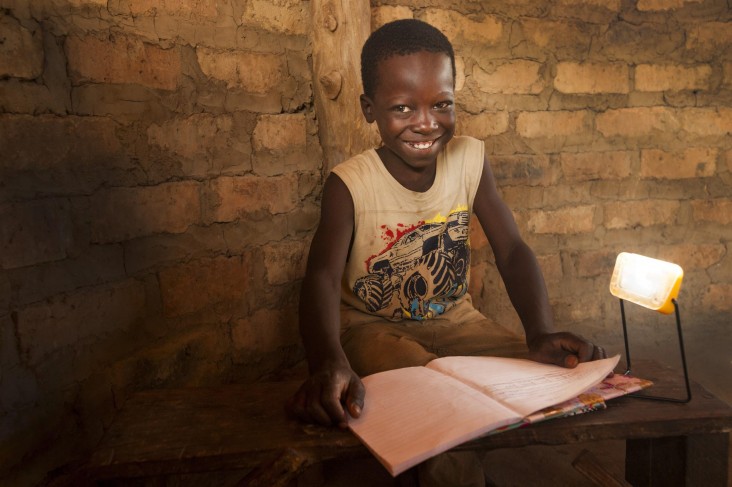Speeches Shim

Enterprise-driven economic growth, poverty reduction, and increased rural household resilience.
The approach of the USAID/Zambia Office of Economic Development and Environment (EDEV) to reducing rural poverty in Zambia is based on three pillars: improving the business enabling environment, strengthening rural enterprises, and sustainably managing Zambia’s natural resource base. In concert with the Health Office, EDEV programs also contribute toward improving water, sanitation and hygiene (WASH) services and support cross-sector nutrition objectives.
EDEV has embarked on an ambitious journey to partner more substantively with the Government of the Republic of Zambia (GRZ), engage Zambia’s robust civil society, and leverage private-sector partnerships where priorities overlap. In line with USAID’s focus on supporting Zambia on its journey to self-reliance, EDEV strives to engage new, local, and underutilized partners, strengthen their skills and potential, and set them on a path to address some of Zambia’s most significant development challenges.
Enabling Businesses to Grow and Thrive
EDEV recognizes the important role businesses play in raising incomes, providing livelihoods opportunities, and reducing poverty. EDEV investments will support small and medium sized enterprises (SMEs) in the agribusiness sector by addressing key investment constraints: access to finance, limited business management skills and technology, and access to markets.
This should increase SMEs’ productivity and ability to create new jobs. EDEV is also partnering with the GRZ to improve the business enabling environment in Zambia across multiple focal sectors including energy, eco-tourism, agriculture, water and sanitation to ensure a more sustainable market-driven alternative to donor-resources is established and maintained.
Expanding Markets and Trade
EDEV engages private and public sector organizations, business and industry associations, and financial institutions to deepen regional economic integration, promote trade and investment between the U.S. and Zambia through Prosper Africa, and help Zambia position itself as a commercial and economic hub for the Southern African region. Working with the GRZ, we are streamlining and expediting commercial and trade processes to catalyze economic growth for the country. Through improvements to customs and border control systems, strengthening sanitary and phytosanitary (SPS) measures, and improving communication on regulations, the private sector is better informed and prepared to expand and grow.
Powering Communities' Prosperity
Through the Power Africa initiative, USAID seeks to increase the generation of, and access to, clean energy sources, particularly in rural and off-grid spaces, to help drive rural economic growth. Zambia continues to face frequent and recurring power blackouts across a country where over 85 percent of electricity comes from hydropower - a power source that is particularly affected by climate change-induced droughts and flooding. The current challenges confronting the electricity sector in Zambia present a platform for the implementation of Power Africa’s efforts to improve the electricity sector by expanding generation, increasing connections and improving the enabling environment so as to attract increased private sector investment in the electricity sector. USAID’s efforts are particularly focused on interventions that catalyze other sector investments such as providing solar energy to health clinics and connecting agribusinesses to off-grid power solutions to name a few.
Improving Natural Resource Management
Zambia’s rich forests and wildlife are threatened by poaching, illegal logging, over-harvesting, and habitat degradation. EDEV is partnering with private sector actors to expand agricultural productivity and alleviate the poverty that serves as one of the main drivers of natural resource degradation. EDEV supports the Government of the GRZ to improve the management of natural resources and thereby provide a long-term, sustainable platform for broad-based economic growth and poverty reduction in rural areas. This is accomplished through Community- and Partnership-Based Natural Resource Management models that place communities at the forefront as the primary beneficiaries.
Improving Access to Water and Sanitation
The availability of safe water, sanitation, and hygiene (WASH) services remain low with 6.8 million, 11 million, and 14.7 million Zambians without access, respectively. EDEV investments seek to improve access to WASH services as part of the multidisciplinary “Most Critical Days Program” (MCDP), ensuring that nutrition gains are amplified. In order to advance learning and build strong evidence towards this approach, EDEV supports the research and evaluation agenda of MCDP. Recognizing the role of service providers, EDEV also supports GRZ and water supply and sanitation companies to access financing so they can improve the quality and reach of WASH service delivery by improving their internal efficiencies, domestic resources mobilization, and creditworthiness.
Improving Nutrition for Children
Stunting affects 40 percent of Zambian children under five years old. As a result of poor nutrition, repeated infection, and inadequate psychosocial stimulation, these children’s learning can be hindered, limiting their ability to participate fully in their country’s social, economic, and political life. EDEV supports the GRZ’s 1,000 Most Critical Days Program (MCDP), referring to the first 1,000 days of life after birth where good nutrition is most critical to physical and mental development to reduce stunting in 30 districts. EDEV also works to improve the GRZ’s ability to plan, advocate, learn, and measure impact. Further, EDEV works with communities and families to ensure health, nutrition, food security, and economic growth are integrated into all activities. Special attention is given to expanding opportunities for women living in extreme poverty to become producers, service providers, and entrepreneurs.


Comment
Make a general inquiry or suggest an improvement.